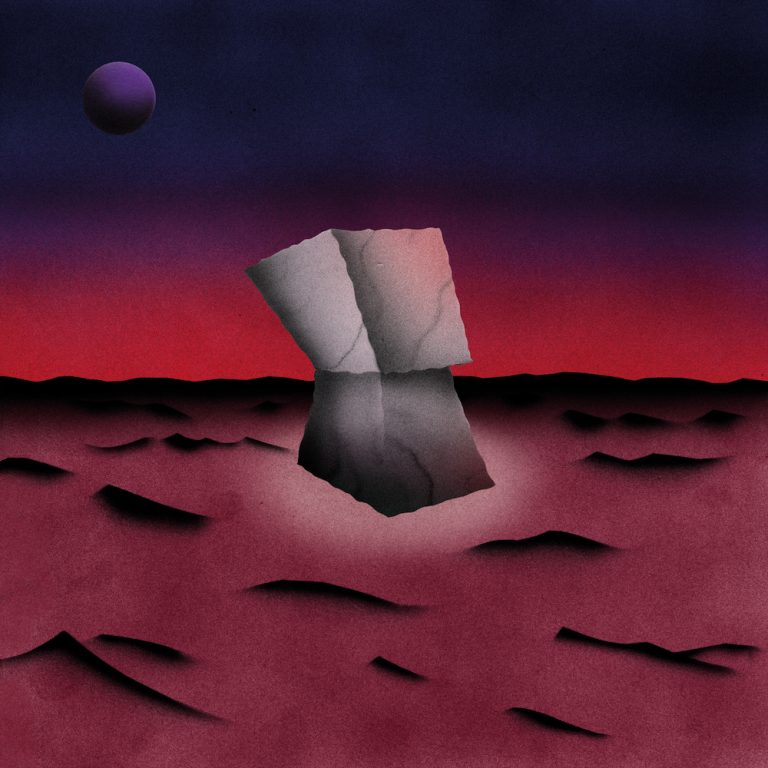Archy Marshall doesn’t keep his feet on the ground very often. Since cultivating a fan base over a decade ago via his spacey rythms and blood-chilling vocals, Marshall’s displacement usually finds him floating in space or on the water. His proper debut as 6 Feet Beneath the Moon turns 10 this year, and it’s still the blueprint for what he does today as King Krule, especially on his newest album Space Heavy.
Conceived between 2020 and 2022 during Marshall’s commuting between London and Liverpool, Space Heavy is the dreamy voyage King Krule devotees have speculated would arrive. The slimier vectors of The Ooz predicted this direction – for every rousing cut like a “Dum Surfer” or “Half Man Half Shark” there were downtrodden and mangled instruments of pain like “Sublunary” with its noir-sax setting the melancholy filled stage. These more deflated-style songs are the undertow that Marshall’s diehard fanbase gets pulled in by, and he has found himself as a spokesperson unknowingly for the tragic masses.
But Space Heavy isn’t like Man Alive! or The Ooz in all actuality. There may be some borrowed elements from each of his previous albums, but it’s Marshall’s most unfocused work to date, a blessing and a curse as always. It largely functions as a dream, and from the opening strings of longtime fan favorite “Flimsier” to the one-note closer “Wednesday Overcast”, Space Heavy drifts in and out of consciousness, like a feverish sleep cycle never staying comfortable for more than a few minutes at a time.
Those minutes of calm manifest in plot deviations like “Seaforth”, the beautiful lead single. It floats as intended; Marshall doesn’t growl, but the waves of turmoil and despair are plenty rowdy. He’s entranced with a relationship, hoping for some reciprocation but is fruitless in his quest. His voice has always had the duplicitous power of being able to curdle milk or make it churn into velvety butter; he opts for the latter here which makes “Seaforth” stand out.
It doesn’t last though, that slumber, that quiet, it’s ruffled by the clashing sax of “That is My Life, That is Yours” the red herring follow up that starts romantic but turns evil. Marshall can’t stand still for long, there’s always some catalyst for this, whether it be gravity or inertia, he’s always moving even if the dreamlike instrumentals tell a different story.
Songs like “Pink Shell” and “Hamburgerphobia” feel like soggy breadcrumbs to collect and connect to past King Krule ragers, but this is perhaps fruitless as Marshall is one of those artists always striving for the next phase, and often sings about moving on from the past. These “rockers” are scattered across Space Heavy, popping out like jump scares in a horror film, but lasting long enough to get the adrenaline pumping. Then they fade, sometimes passing us by entirely and leaving our memories as soon as we wake up.
“Seagirl” presents an unexpected twist, as R&B pop artist Ravenna takes a hold of the album’s dreariness and steers it into elegance for a few minutes. It’s surprisingly the first time Krule’s credited another singer on an album, and with dual vocal responsibilities it makes for one of Space Heavy’s loveliest moments, despite its brevity.
It’s in the album’s last third, that things start to feel a little less cohesive, which could have been said about The Ooz’s latter half – but there he ultimately pulled us back in, here his grip is less assured. After he finishes shouting about “my plastic straw!” on the title track, Space Heavy lets us slip through “When Vanishing” and “If Only It Was Warmth”, arriving at closer “Wednesday Overcast” with little to separate them.
Space Heavy is ultimately King Krule’s most challenging work. It acts like a stream-of-consciousness but with minor guardrails to keep Marshall from spiraling out into truly wicked realms. The moments he does let go, like in the end, never feel completely satisfying. The Ooz harbored the man’s greatest fears in the physical world, the people he met and despised. Man Alive! was oddly enough his most positive, if you can even call it that given tracks like “Comet Face”, but nevertheless it existed as such in contrast to its gritty predecessor. Space Heavy never really gets to where we want it to go, Marshall pulls back instead of giving in. This will no doubt frustrate his legions of fans, but those interested in the slow-wash feel of his music will no doubt stay forever in love with his music.

